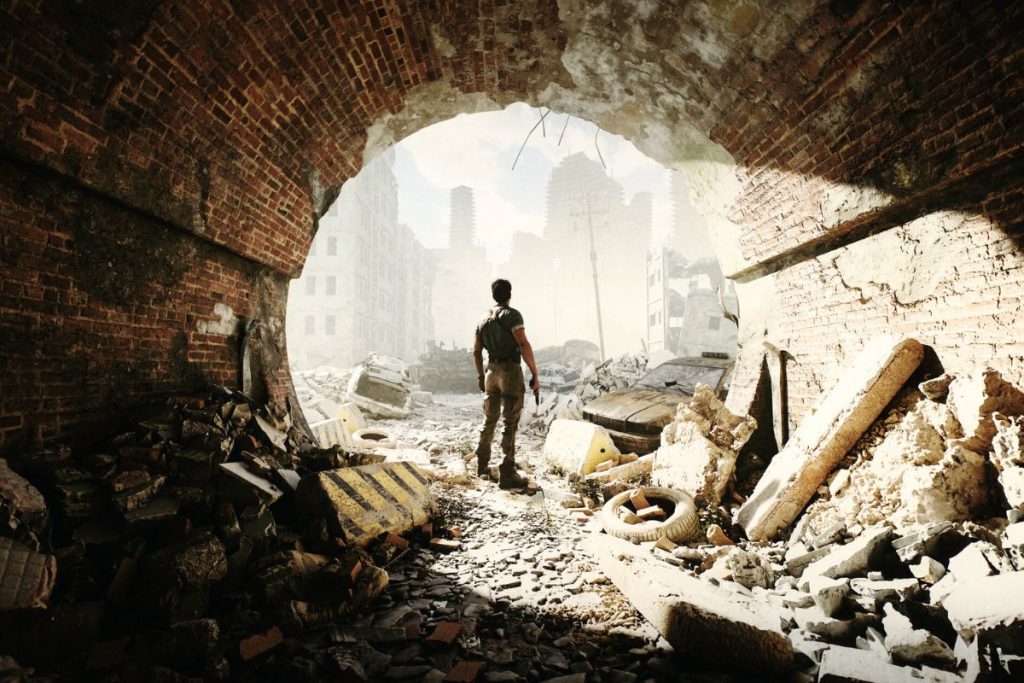As The Last of Us returns for its highly anticipated second season on April 13th, it’s clear that this post-apocalyptic series is more relevant than ever. Based on the beloved video game, the show, which captivated millions in its first season, dives deeper into themes of vengeance, human conflict, and survival. And, with the world still reeling from crises that echo the series’ narrative, the show’s ability to resonate is more powerful than ever.
The themes that hit home: political and societal allegories
When The Last of Us premiered in 2023, the world was emerging from the shadow of a pandemic, and the series, based on a world devastated by a deadly fungal infection, felt oddly timely. The show’s portrayal of society on the brink of collapse captured global attention, not just for its intense action and emotional depth, but also for its sharp reflections on humanity’s darker sides.
Pedro Pascal, who stars as Joel, believes the show’s power lies in its ability to explore the human condition in times of crisis. “The show looks at relationships under duress, at how people respond to suffering, and it cleverly draws political and societal allegories that are based on the world we live in,” he said. These aren’t just fictional struggles; they mirror the fears and conflicts that are rampant today.
The first season already set the stage for Joel and Ellie’s journey, as they traverse a devastated United States to find a cure for a pandemic-like fungal infection. But as we move into season two, the stakes are higher, with conflict and vengeance taking center stage, making the show feel even more pertinent in our current climate.
New faces and evolving dynamics
This season introduces a new character, Abby, played by Kaitlyn Dever. Abby, a military character with a fierce and violent streak, adds complexity to the story as she faces off against Joel and Ellie. Dever, who was once considered for the role of Ellie when The Last of Us was originally planned as a film, finds her casting in the series particularly meaningful. “It feels surreal,” she shared. “I was a fan of the game, and it was a special bonding moment for my father and me when we played it together.”
For fans of the video game series, Abby’s inclusion will be a significant one. As one of the main playable characters in the franchise, her appearance in the show will no doubt be a major turning point in the plot.
A cathartic season amid global turmoil
For Gabriel Luna, who reprises his role as Tommy, Joel’s brother, season two is incredibly cathartic, both for the characters and the audience. “It comes at a time when there’s so much conflict in the world, and international alliances are breaking apart,” Luna said. His words resonate strongly in a world still grappling with geopolitical tensions, economic uncertainty, and social unrest.
“The first season was about a pandemic,” Luna explained. “And we feared people might be fatigued by that theme. But what people experienced during the pandemic gave them a real connection to what we were depicting on screen.”
Season two, much like the second game in the franchise, focuses heavily on conflict: where it starts, who fuels it, and how it impacts everyone caught in its grip. The show’s characters, much like many in the real world, are caught in a cycle of revenge. The burning question is: can it ever be broken? Luna points to how the world’s current struggles echo these themes: “Right now, people are trapped in this wheel of vengeance. Can we break it? Will it ever be broken? That’s where we are.”
As The Last of Us returns for another season, its emotional weight is more relevant than ever. The show taps into timeless themes of survival, family, and revenge, while offering a poignant reflection of the world we live in today. With unforgettable performances and a storyline that reflects the struggles of modern society, it’s no surprise that the second season is generating so much buzz. Whether you’re a fan of the video game or just discovering the series, there’s no denying the raw power this show has in making us reflect on the world we live in — and the choices we make.



